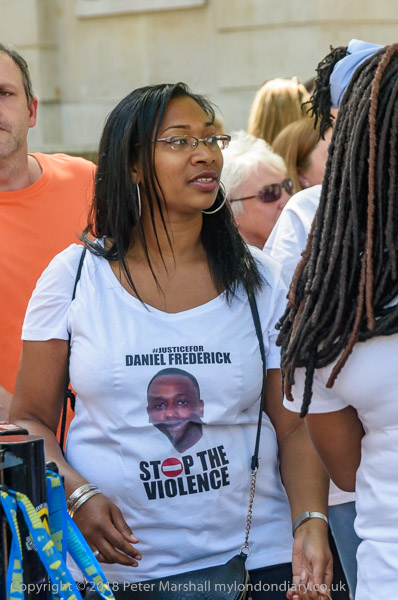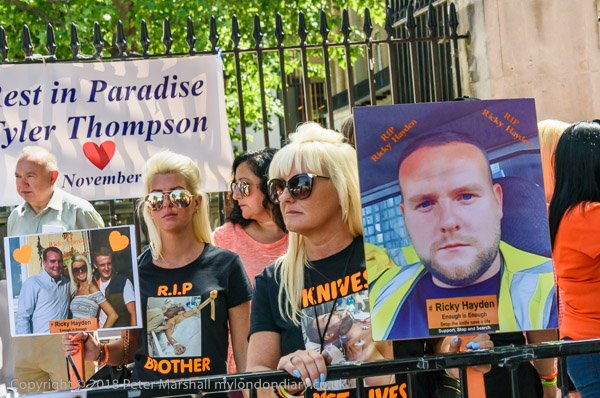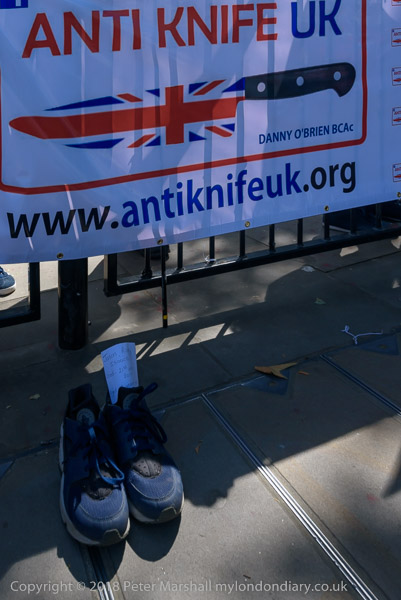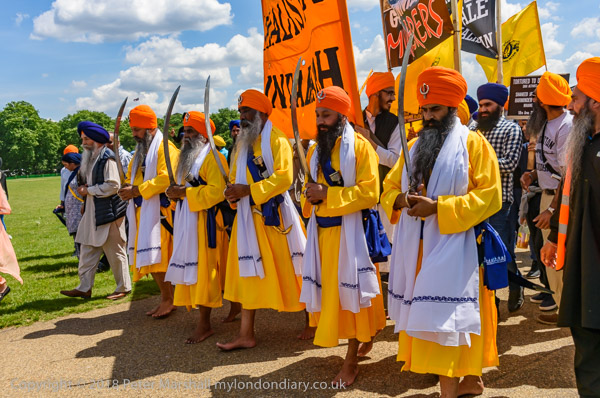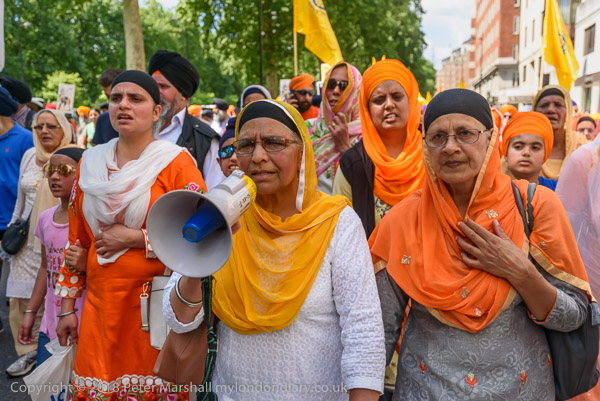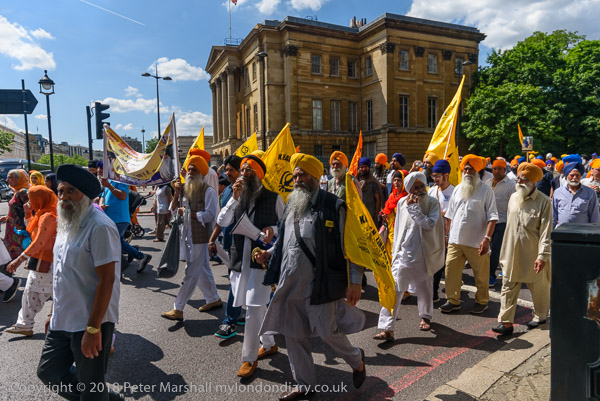Knife Crime & Sikh Genocide: On Saturday 3rd Jun 2018 Anti-Knife UK protested opposite Downing Street calling on Prime Minister Theresa May to take action against knife crime in the UK. From there I went to Hyde Park where several thousand Sikhs were meeting to march through London to Trafalgar Square in memory of the 1984 Indian Army attack on the Golden Temple in Amritsar and the mob killings of Sikhs later in the year encouraged by the Indian government following the assassination of Indira Gandhi by her Sikh bodyguards.
Anti-Knife UK protest – Downing St
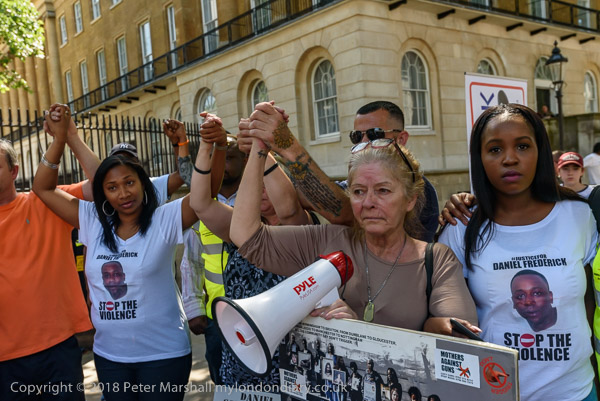
Anti-Knife UK had been founded by Danny O’Brien in 2008 to monitor knife crime incidents from across the UK on a daily basis and to campaign for legislation and other actions to reduce them. He announced at the protest that he was stepping down from active leadership because of the strains it had put on his mental health leaving the campaign to be carried forward by others.

Anti-Knife UK had organised this protest by community groups and campaigners from various groups across the country to urge Theresa May to take action against this growing problem. Many at the protest were family and friends of those, mainly young men, who had been killed in knife crimes and wore t-shirts with pictures of the victims.
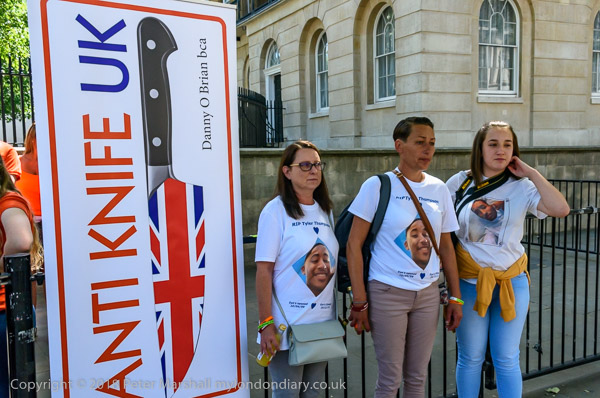
As well as placards and banners some had brought pairs of empty shoes to remember those killed.
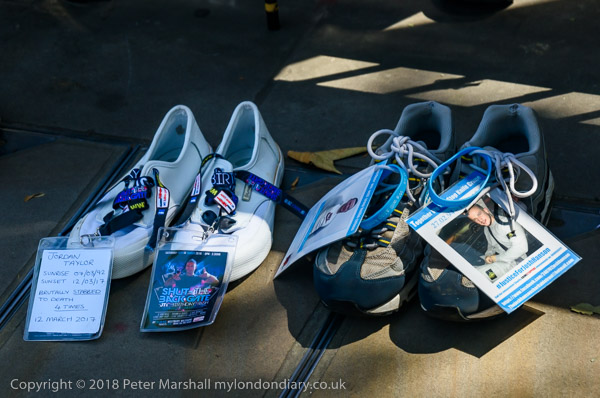
Speakers at the rally called for government support for measures to tackle the problem including tougher sentences, tagging of all knives, knife arches in night clubs, equal rights for victims and families, and a review of the laws governing self-defence and reasonable force as well as more work in schools and communities.
More pictures at Anti-Knife UK protest.
Sikhs remember the 1984 genocide
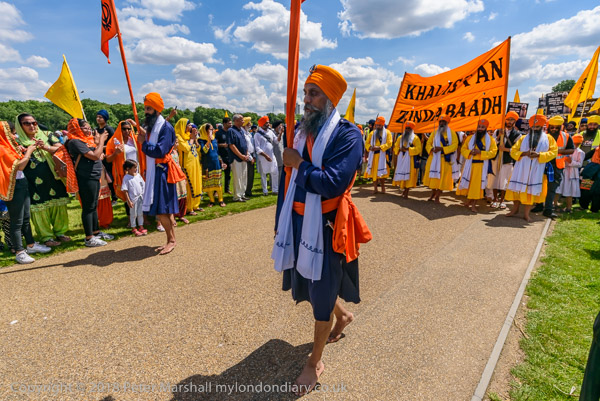
Several thousands of Sikhs sat in front of a stage on a lorry in Hyde Park for a rally addressed by a succession of Sikh leaders calling for and end to the persecution of Sikhs in the Punjab and for freedom in an independent Sikh state of Khalistan. Sikhs got a raw deal at partition in 1947 and promises made to them at the time were never kept.
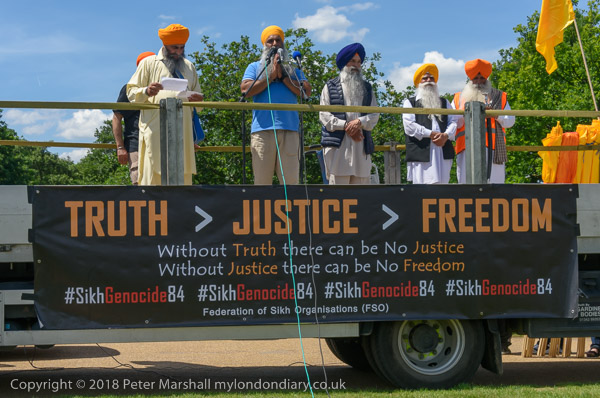
They remembered the thousands of Sikhs killed in the 1984 Indian Army attack on the Golden Temple in Amritsar, Operation Blue Star, and more murdered later that year after the assassination of Indira Gandhi when the Indian government encouraged mob killings of Sikhs, crimes for which none have been brought to justice.
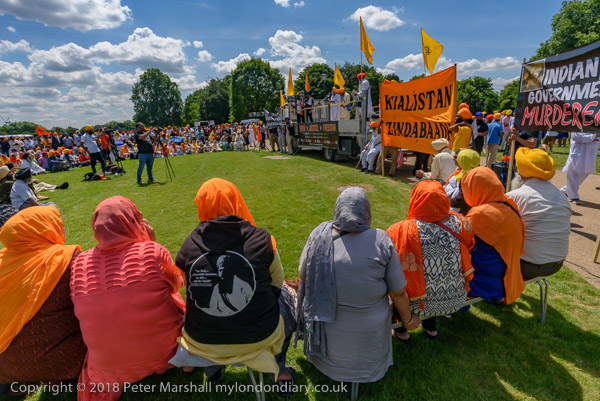
Since the 1984 Sikh genocide there has been a continuing program of police arrests, torture and killing of Sikh males in the Punjab and crippling economic and social policies. Many Sikhs demand independence from India and a Sikh state of Khalistan.
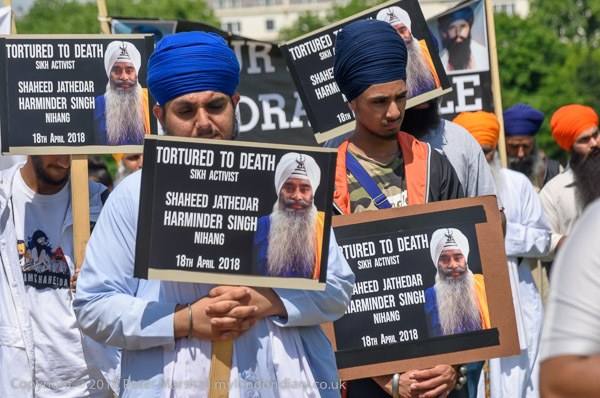
The militant Sikh group Babbar Khalsa calling for independence had been formed a few years before 1984 and had been active for some years in the Punjab before they gained international notoriety by planting a bomb in an Air India flight to Canada which killed 329 people in 1985. Some at least of the continuing activities of this group are thought to be financed by Pakistan.
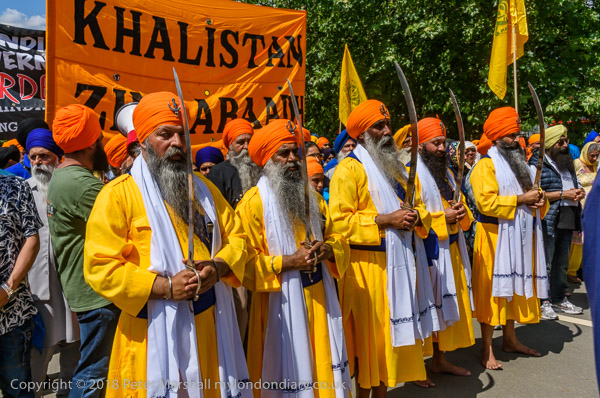
Babbar Khalsa are a proscribed group in the UK and in some earlier years I photographed this event some people were arrested for allegedly promoting this organisation. This year I saw none of this, but Babbar is an Indian family name.
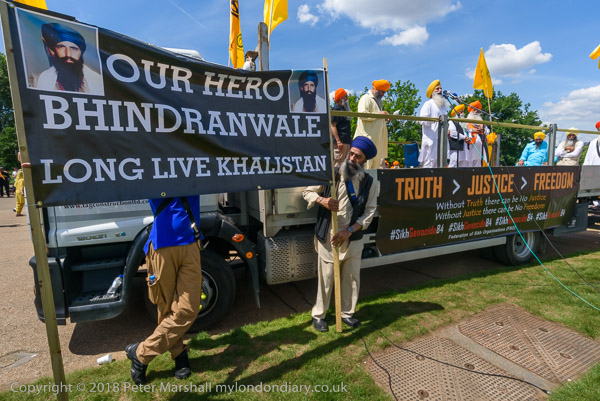
Some did carry placards showing Kulwant Singh Babbar, one of the first members and founders of Babbar Khalsa and a supporter of Khalistan movement, killed by Indian army snipers in Operation Blue Star in 1984.
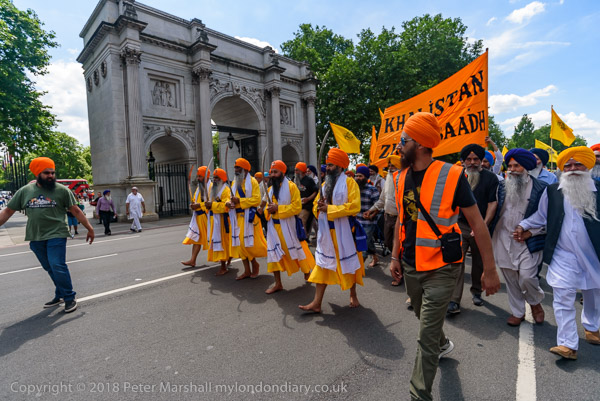
This was a peaceful protest and I was made to feel welcome as I took pictures – and enjoyed some of the free food being handed out to all at the event before the march.
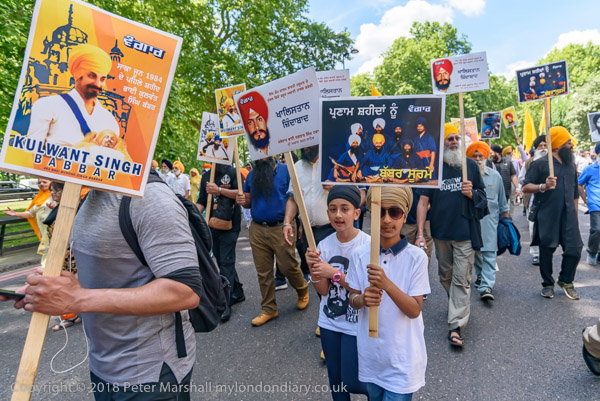
The start of the march was led by groups from Birmingham and when they reached Marble Arch they were unsure which way to proceed. They decided to go back into Hyde Park and get the police to tell them which way to go, and were led back through a gate a short distance down Park Lane and led across to continue,
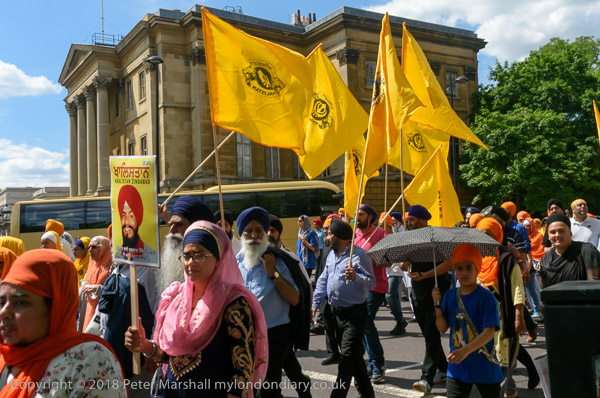
I left them at Hyde Park Corner on their way down Piccadilly towards a rally in Trafalgar Square.
More pictures on My London Diary at Sikhs remember the 1984 genocide.
Flickr – Facebook – My London Diary – Hull Photos – Lea Valley – Paris
London’s Industrial Heritage – London Photos
All photographs on this page are copyright © Peter Marshall.
Contact me to buy prints or licence to reproduce.
